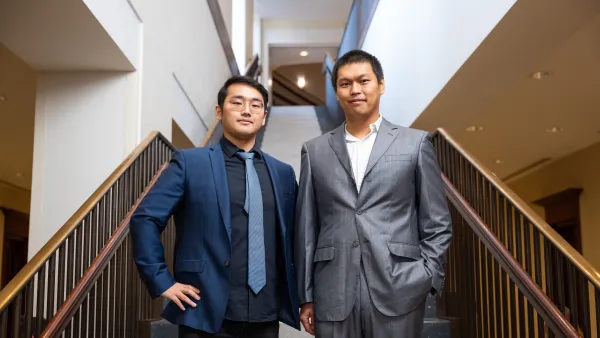Chong Zu's research interests lie at the interface between atomic, molecular and optical physics, condensed matter physics, and quantum information.
In recent years, the synergies between these fields have led to tremendous experimental process in assembling, controlling and detecting of individual quantum systems. These advances have opened the door to revolutionizing computing, allowing novel and secure multiparty communication protocols, and ushering vast improvements in the performance of sensors. My group at WUSTL focuses on employing solid-state spin defects (e.g. nitrogen-vacancy and silicon-vacancy centers in diamond) for quantum sensing, simulation and computation.
Current research projects:
Quantum-enhanced sensing: Recently quantum sensors based on solid-state spin defects have emerged as localized probes for a myriad of signals, including magnetic and electric fields, strain and temperature. Compared to conventional methods, such platform offers nanoscale spatial resolution and the ability to operate under a wide variety of external conditions — e.g. ranging from cryogenic (∼ 10 mK) to high temperatures (∼ 600 K), from ambient to megabar pressures and in the case of biological samples, directly in-vivo. Our group is interested in employing solid-state quantum sensors as a unique and versatile tool to explore novel phenomena in physical, chemical and biological systems.
Non-equilibrium quantum dynamics: While quantum sensing employs the coupling between a defect and its external environment, quantum simulation utilizes the interplay between defects themselves. In a sample with extremely high spin defect concentration, the average spin-spin spacing can be as small as a few nanometers, leading to strong dipolar interactions. This provides a natural playground to experimentally investigate quantum many-body dynamics in regimes that are especially difficult to study via analytical calculations or numerical simulations.
Quantum information and computation: Thanks to their atomic-like properties: long-coherence quantum states and well-defined optical transitions, spin defects in diamond (e.g. NV and SiV centers) have recently emerged as one of the most promising physical systems for realization of quantum information processing. Using a combination of optical and microwave fields, we have successfully prepared the entanglement between single NV electronic spin and nearby nuclear spins (e.g. carbon-13 and nitrogen-14) and used such entanglement to realize quantum information and computation protocols.
Professional History
Chong Zu received his B.S. in physics and mathematics from Tsinghua University in 2011. After completing his Ph.D. in Prof. Luming Duan’s group at Tsinghua University in 2016, he began postdoctoral work at UC Berkeley in Prof. Norman Yao's group. He joined Washington University as an assistant professor in the summer of 2021.



